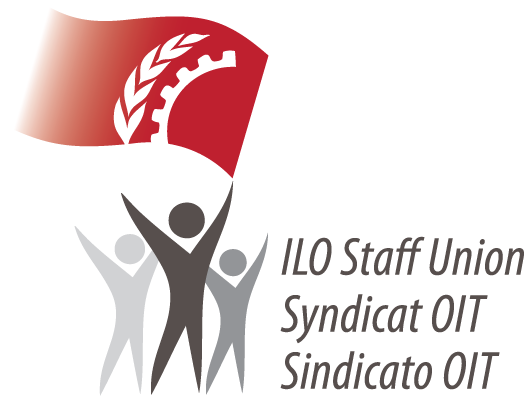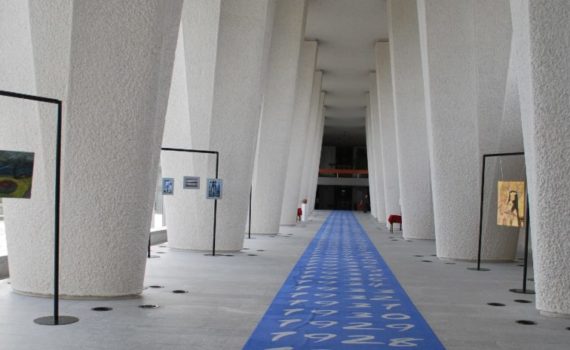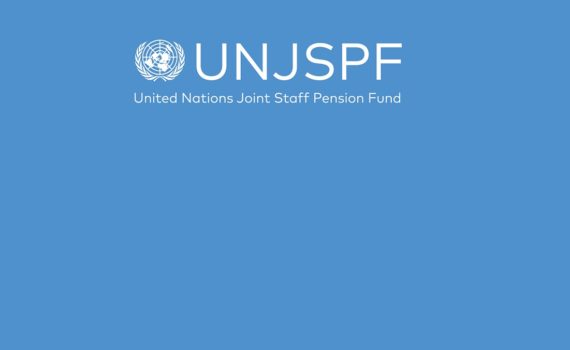Gone are the days when the Editorial and Translation Division (later Branch) was an important service, not only responsible for editing and publishing books and periodicals, but also conference records and official documents, translations, printing and dissemination by sales and otherwise. When I joined the ILO in 1950 the Division was headed by J.E.A. Johnstone as chief of Division, a Canadian Professor of Greek, rumoured to have Iroquois blood. He had joined the ILO in 1927 and worked during the war at the ILO Working Centre in Montreal. He was a personality, much respected by all for the strength of his commitment to the ILO and the firmness of his defence of editorial standards and of the interests of his Division. He carried a tradition of excellence in the publishing world, which had it roots far back to the early years of the Organization[1].
The hardest task was assigned to us year after year as another session of the International Labour Conference took place. Basing myself on my recollection of the years before I was transferred to the ILO Liaison Office with the United Nations in 1957, this is what I can tell you about how we worked for three weeks every June.
Speeches made at the plenary sittings of the Conference were taken down by verbatim reporters[2] (for Spanish we had such outstanding workers as Enrique Martîn, Sorel and Manuel Carrillo (before he was assigned interpreter duties), and transcribed by themselves, or such excellent stenographers or copy typists as de Hoyos, Ricardo Dîaz Corpiôn, Isabel and Rosa Miragaya, and later, Emilio Forcada and Virgilio Garrote. Only rarely would an interpreter take the trouble to re-dictate a speech that had not turned out well in the language of interpretation. In most cases I remember, it was always Dick Roome who turned up at the Typing Pool’s quarters high up in the Palais to dictate anew something he thought he had not done properly on his first try (Dick was an excellent translator and a first-rate colleague, and this may partly explain why he was willing to help those of us who were on Conference Record Service duty.) Rather reluctantly, Mr. Johnstone would let members of his staff serve as interpreters. As a result, we were lucky to have on the Spanish side such good colleagues as Juanita Riley, Ana Marîa Etchegorry and Manuel Carrillo, and the English side had Roome, Michael Bell, Kitty Leibovitch, Jim Connolly, Patrick Denby and Hugh Jones.
The typescripts of all speeches were sent down to the Conference Record Service. Sometimes we were glad to see at first sight that the text had been improved by our colleagues in the Typing Pool who knew how much we suffered from the bad quality of interpretation (and more particularly from the fact that the style and the content of most transcripts needed to be adapted for publication; interpretation did not lend itself to immediate reproduction as a text written with care, unless the interpreter happened to be one of the few really talented ones, such as Kitty Natzio, Albert Kouindjy, George Dunand, Roger Glémet, Mrs. Kerr or, later, Camille Amacker, or was willing to spend time deciding how he or she would translate a prepared speech made available before their turn in the interpreters’ booth had started).
There, the mass of typescripts for a whole sitting would be distributed in any order among the editors, revisers and translators on duty. (Until the 1970s, the staff of the Conference Record Service worked from 9 a.m. until the end of business.) As a rule, there were only three people in each language team and the chief of the Service rarely called for reinforcements, because he wanted regular non-Conference work to continue normally at the ILO building by the lake. The composition of these teams varied. One year, the Spanish team would be composed of Martinez Mont, Sifre and Altimiras, and Elena Ochoa and Juanita Riley would serve with Martinez Mont the following year. Subsequently, Pepe Osuna led the team and Araquistáin, Payró or Xavier Caballero seconded him. The French and English teams were·more stable: Pierre Boulas was almost always the head, seconded by Bernard Spy, André Lang, Guy Cotté, Raymond Bas or François Moret, and the English team was composed of Nora Moffat, Molly Healey and Pat Norsky (née Boyd), and Robert Caldwell from time to time.
Rarely did we leave the Palais before midnight; when Conference Committee reports started to come in, we might be working until 3, 4 or 5 in the morning. I remember one occasion in the early 1950’s when Osuna, Araquistáin and I worked non-stop for what seemed to be 48 very full hours because the Spanish edition of the Provisional Record had fallen behind by a whole day.)
One person from each language team was assigned by Mr. Johnstone to keep a careful record of what went on in plenary. This record was called the “skeleton” and was used to note not only the order in which business was transacted and the names and accreditation of each speaker (including those who had raised points of order), but also, to the extent possible, the names of the interpreters. The latter information was useful: it let us know what we could expect about the quality of a transcript, thus giving us some insight regarding the time it might take to put a speech into shape.
Most speeches were copiously revised, since we took pride in the fact that anyone reading the Provisional Record or making use of the Record of Proceedings would find that the concordance of texts in English, French and Spanish was quite good and even excellent. Prepared speeches were relatively easy, even when they were read terribly fast because the delegate was trying to finish before the time limit of 15 minutes expired. But every now and then, practically everyone improvised and then we were faced with something much worse than the tower of Babel.
There were a few excellent speakers, like Léon Jouhaux, Pierre Waline, Sir Guildhaume MyrddinEvans, Alfred Roberts or Arutiunian, but the others belonged to another class altogether. (For a couple of years I specialized in improving and shortening the transcript of speeches made by Mr. Tripathi, a workers’ delegate from India, and the Cuban workers’ delegate, who spoke at great length and great speed as well as with double the amount of passion and repetitive emphasis that most delegates would show.)
Then the main editorial team would check batches of typewritten copy, introduce typographical markings and stylistic or substantive corrections, ensure that the record of each sitting was complete, that the list of speakers was correct, and that all procedural questions had been dealt with in accordance with the Standing Orders of the Conference and long-standing practice. There were times during the Cold War years when everything came to a standstill when a delegate objected to remarks made by a speaker and it became necessary – according to new rules laid down by the Conference – for the President and his advisers to inspect the incriminated passages of a speech or several speeches and determine whether they would be expunged from the record or allowed to be printed. (Sometimes, the passages we were told to delete one day had to be reinstated the next day as part of a corrigendum.)
The next step was for the chief of the Conference Record Service to authorise the despatch to the printers of batches of typescript. In Mr. Johnstone’s time, he personally reviewed every batch of copy in the three languages before agreeing to their transmission to printers anxious to receive them as hours went by past midnight until 2, 3 or 4 o’clock in the morning.
Conference Committee reports required even more care. We had been trained to think in terms of a full cycle, so we knew that most of the time we were not handling reports of ephemeral value. The technical reports submitted to the Conference and the reports on the discussions on them were all part of a sequence that would not end necessarily with the adoption of an international instrument; we knew only too well that the precedents established with one set of reports for single or double discussion would be relevant and useful when a cognate subject was placed on the agenda of the Conference at a later stage. Editors meticulously verified the correctness in form and accuracy of the master language and of the translations of the reports and the draft instruments, conclusions, resolutions or annexes attached, and up to the last minute incorporated new matter and further changes communicated by each secretariat after the relevant Committee had concluded its deliberations. (Kundig once told me that, knowing that Johnstone did not a want a single page of the annexes and the report of the Application Committee to be sent to the printers before the Committee had completed its work late on the last Friday before the Conference closed, he had threatened to pick up copies of those texts he found lying about in the Delegates’ Lounge and start the typesetting some days earlier. The full report, together with the annexes, had to be distributed the following Monday, so one can understand printing plant Kundig’s reaction, all the more since the Application Committee report was by far the bulkiest. It was not before the 1970s that our practice changed and the printers were allowed to start typesetting as early as Monday or Tuesday, although this meant that corrections made at the page proof stage were heavy.)
The roneoed pages of the Committees’ reports would be covered with handwritten corrections. A lot of time would be devoted to cross-checking the contents in three languages before it could be decided to send the reports to the printers.
And what happened there? It was not only the printing staff that eagerly awaited the batches of copy we sent. Obviously, lino-typists and Monotype compositors would take several hours setting type and correcting mistakes, but it was our own ILO proofreaders and copyholders who were carefully reading proofs as they became available and marking essential corrections. They would again handle the same volume of proofreading after the printing staff had finished the page make-up and page proofs had been inked; it was often at this late stage that they had to incorporate last minute amendments sent in by the Conference Record Service. In all likelihood, these would concern the report of the Conference Committee on the Application of Conventions and Recommendations, and more particularly its annexes, since many delegates sent in amendments to the summaries of their interventions during the Committee’s deliberations, all the more so when the debate had turned against them and the countries represented by them were to be mentioned in a Special List.
The printing work, organising and controlling all external printing done for the lLO by old-style printers proud of their excellence at monotype and linotype printing and binding, but also for ensuring that ILO specifications and quality standards were carefully met through proofreading and other technical work done by our printing staff. The lLO was proud of the quality of its reports and publications. How could one be unaware of this fact when most publications and reports were handled by full-time editors before they were translated for publication in another language, and were closely scrutinised at various stages by the staff of the Printing Section?
At that time the boss of all printing work was Auguste Larvor, a convivial man outside his own shop but a stern boss when dealing with his own subordinates, who were ruled in the old-fashioned way which some may have called the master’s whip and not a glove. Larvor, like his two immediate successors – R.E. Charlton and Fred Richardson – was under constant scrutiny by J.E.A. Johnstone, the chief of Branch, who was respected by all for the strength of his commitment to the lLO and the firmness of his defence of the interests of his Branch. Mr. Johnstone inspected every bit of printed matter produced by the lLO and was determined to make commercial printers and lLO members of the Printing Section respect the golden rule that ILO periodicals appeared on time and Conference reports were never to be issued with more than 24 hours’ delay over the scheduled date of publication. Every June he did all he could to enforce the rule that the ILO Conference’s Provisional Record for the previous day’s sittings had to be available by the time delegates started moving into the plenary hall or the various committee rooms at the Palais des Nations, with an occasional delay, never tolerated beyond an hour or two, when a Conference Committee Report on a technical item for first or second discussion, on Resolutions or on the Application of Conventions and Recommendations, was placed for discussion and adoption on the plenary’s agenda often only six or seven hours after the printers had received the end of the relevant manuscript. The same schedule would be enforced whenever it had been announced in the Daily Bulletin that a draft Convention or Recommendation would be put to the vote at an unmovable time.
What did the ILO entrust to external printers in those days? Everything having to do with the International Labour Conference, including the List of Delegates and the authentic texts of any Convention and Recommendation adopted (which had to be ready overnight before the Conference closed, so that the President of the Conference could affix his or her signature on them). The Official Bulletin, the Minutes of the Governing Body, the monthly International Labour Review, the Legislative Series, the bi-monthly Occupational Safety and Health, the fortnightly issues of Industry and Labour, the Year Book of Labour Statistics, the Budget (which was then an annual affair) all Studies and Manuals, the Reports of the Director-General to regional conferences (and the records of proceedings of such conferences) and all special publications, were also printed by contractors.
There was no letterpress printing in the case of reports for what we now call Sectorial Meetings. In other words, the reports submitted to Industrial Committees and similar bodies were entrusted to the Roneo Section (the “roneo” machines were much slower than the offset machines installed in the late 1970s), and only the reports and texts emanating from such meetings were subsequently printed in the Official Bulletin. The same applied to freedom of association cases, available in roneoed form at the start and printed much later on in a special series of the Official Bulletin.
In the 1950s, the Printing Section had a chief (Larvor) and a deputy chief (Charlton), and never less than four proofreaders and one copyholder for each of the main languages (English, French and Spanish). They read and corrected twice and sometimes more than twice the galley proofs and the page proofs of everything the lLO had entrusted to outside printers. Those were the days when English editors knew that no error would be missed if Charlton had done the proofreading, but also knew how well Richardson, Veitch, Thompson and Norris could perform if allowed enough time to do their job; those were the days when French editors would infallibly applaud the work done by Deshusses or Dittert although they might argue with corrections introduced by somebody like Bachelet or Neuenschwander, and when Spanish editors were only too glad to have their texts inspected by such wonderful proofreaders as Félix Lorenzo, Salvador Oriza, Enrique Benavent and, later, Luis Echevarria.
We owed a lot to them. They would not let misprints or factual errors go unnoticed, they would detect passages where words were missing, they would question figures that did not add up, they would teach us the ABC about printing and about proofreading and, at least in my own case, made me improve my drafting by heavily annotating the typescripts I sent to them for copy preparation. Moreover, they made us take an interest in making ILO books look better and in knowing a bit more about the printing trades and encouraged us to visit printers to see how the work was done. And they worked with editors and revisers as if they were all part of the same team. Although it reported to a different chief, the Stenographer and Typing Pool was always there as another essential element in the processing chain. Whether under the direction of Mrs. Cacopardo, Mrs. Lawrenson, Rosita Daly or Isabel Miragaya, the Typing Pool was always willing to lend a hand. It’s staff would take dictation from all translators and copy-type heavily corrected typescripts or handwritten texts from officials like me who preferred to scribble instead of wasting the time of verbatim reporters who could have taken down a whole speech in the time that took me to decide what turns of phrase and what words I would use in a translation.
Although it reported to a different chief, the Stenographer and Typing Pool was always there as another essential element in the processing chain. Whether under the direction of Mrs. Cacopardo, Mrs. Lawrenson, Rosita Daly or Isabel Miragaya, the Typing Pool was always willing to lend a hand. Its staff would take dictation from all translators and copy-type heavily corrected typescripts or handwritten texts from officials like me. Indeed, for as long as I can remember some proofreaders were always made available to handle copy-preparation, copy-editing or sub-editing tasks, when editors were not free.
Can you imagine how it was that our Printing Section’s staff worked during those three weeks? I will give you only one example from direct observation. The Spanish edition of the Provisional Record was printed by Kundig’s at their relatively small premises near the Old Town. The compositors, some Swiss, some Irish, the odd Turk, some German, for the most part, did not know a word of Spanish. It would have been bad enough having to typeset a whole line or word by word from a good typescript in Spanish, but they had to guess what the handwritten corrections said and how they were spelled, because changes had been made by different hands and very often they had to deal with illegible handwriting between lines, on the margins or on bits of paper attached to the copy. Our proofreaders were busy with their own work but had to answer the typesetters’ queries and help them unravel what ILO staff members working in a great hurry had written by hand. The same happened at the Tribune de Genève, where the English and French editions of the Provisional Record were printed.
This was the heaviest work period year after year. We, the editors, revisers and translators and the small secretariat composed of Lucile Harrison, Juliette Palacios and Claire Chan, shared with the staff of the Printing Section the lot during the month of June, perhaps working longer hours because proofreaders and copyholders worked two long shifts. It was a hard school, but a highly rewarding experience that has left me many vivid memories.
Roberto P. Payró, former chief of the
Editorial and translation Branch, died in 2017
[1] Later I myself was to become chief of the Editorial and Translation Branch from 1970 until my retirement in 1984.
[2] The English and French verbatim reporters included such well-qualified colleagues as Mrs. Gilmour, Miss Tynan, Mlle Boulaz, Mrs. Lapalme and Mr. Rogès.
 The Section of Former Officials of the ILO
The Section of Former Officials of the ILO



